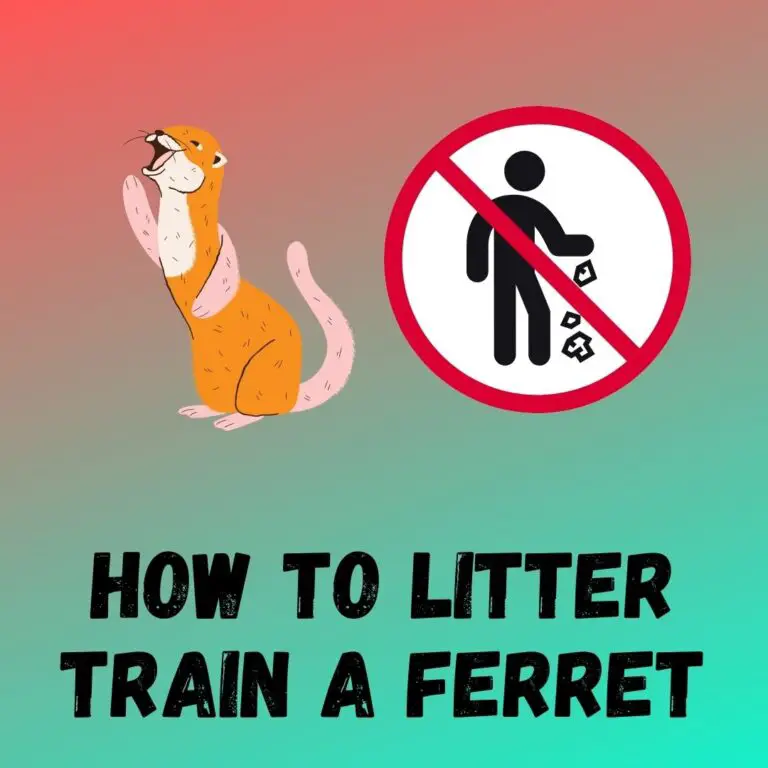
Ferrets and Play: Exploring Their Natural Behavior
One of the most endearing traits of ferrets is their playful nature. As a ferret owner myself, I can attest to the fact that these little furballs are always up for a good game. But what drives their love for playtime? Let’s delve into the world of ferret behavior to better understand their natural instincts when it comes to play.
1. Instinctive Hunters
In the wild, ferrets are natural hunters. They have a strong prey drive and are built for chasing and capturing small animals. This instinct is still present in domesticated ferrets, and it manifests itself in their play behavior. When they engage in play, they are essentially practicing their hunting skills. Whether it’s pouncing on a toy or playfully nipping at your fingers, ferrets are exercising their natural hunting instincts.
2. Social Interaction
Ferrets are social animals by nature, and play is an important part of their social interactions. Playtime allows ferrets to bond with their human companions and fellow fuzzy friends. It’s not uncommon to see ferrets engaging in playful battles with each other, tumbling, and wrestling to establish dominance or simply to have fun. By engaging in play, ferrets strengthen their social bonds and establish a hierarchy within their group.
3. Mental Stimulation
Playtime is not just about physical activity for ferrets. It’s also a way for them to stimulate their minds. Ferrets are intelligent creatures that thrive on mental stimulation and environmental enrichment. Play provides them with an outlet to explore and interact with their surroundings, keeping their minds engaged and preventing boredom. It’s important to provide a variety of toys and play opportunities to keep your ferret mentally sharp and content.
4. Exercise and Energy Release
As active animals, ferrets need plenty of exercise and playtime is a great way for them to burn off excess energy. Regular play sessions help prevent behavioral problems that may arise from pent-up energy, such as destructive chewing or hyperactivity. By engaging in play, ferrets not only exercise their bodies but also release mental and physical tension, leading to a calmer and happier ferret.
Understanding a Ferret’s Playful Nature
As someone who has spent years observing and interacting with ferrets, I can confidently say that they have a natural inclination for play. It’s fascinating to understand the reasons behind their love for playtime. Let’s dive deeper into the factors that contribute to a ferret’s playful nature.
1. Instinctive Behavior
Ferrets have a strong prey drive, which means they possess natural hunting instincts. Playtime for ferrets often mimics hunting behavior, as they engage in chasing, pouncing, and wrestling with toys or even other animals. This instinctive behavior allows them to practice their hunting skills, even if they are domesticated.
2. Social Interaction and Bonding
Playtime is an essential part of social interactions for ferrets. It not only promotes bonding with humans but also allows them to interact with other ferrets. Through play, ferrets establish their hierarchy within a group and strengthen their social connections. It’s a way for them to communicate, establish boundaries, and build trust with their companions.
3. Mental Stimulation
Playtime provides mental stimulation for ferrets. They are naturally curious creatures and enjoy exploring their surroundings. Engaging in play allows them to satisfy their curiosity and exercise their problem-solving skills. Puzzles, tunnels, and interactive toys can be great ways to stimulate their minds and keep them mentally sharp.
4. Energy Release
Ferrets are active animals that require plenty of physical activity to stay healthy and happy. Playtime provides them with an opportunity to burn off excess energy. Regular play sessions can help prevent behavioral problems that may arise from boredom or pent-up energy. It also promotes a healthy weight and overall well-being for your furry friend.
Do Ferrets Enjoy Playing in Rice?
As an expert blogger with years of experience writing about ferrets, I can confidently say that ferrets do not enjoy playing in rice.
While it may seem like a fun and harmless activity, there are several reasons why it is not suitable for their playtime:
- Safety Concerns: Ferrets have a natural curiosity and tendency to explore their surroundings. Rice grains can easily get stuck in their nose, ears, or throat, causing discomfort or even injury. Moreover, if a ferret accidentally swallows a large amount of rice, it can lead to digestive issues and blockages.
- Inappropriate Substrate: Ferrets enjoy playing and digging in materials that mimic their natural environment, such as sand or shredded paper. Rice, on the other hand, is not suitable as a play substrate for ferrets. It doesn’t provide the necessary texture or stimulation they need during playtime.
- Potential Health Risks: Uncooked rice can contain bacteria or parasites that may be harmful to ferrets if ingested. Additionally, the presence of dust or contaminants in rice can pose respiratory risks for these small animals.
So, if you’re looking for safe and enjoyable playtime activities for your ferret, it’s best to avoid letting them play in rice. Instead, focus on providing them with appropriate toys, tunnels, and interactive games that cater to their natural instincts and needs.
Remember, ferrets are playful and curious creatures, and it’s our responsibility as their owners to ensure their safety and well-being during playtime.
The Pros and Cons of Allowing Ferrets to Play in Rice
When it comes to allowing ferrets to play in rice, there are certainly some pros and cons to consider. While it may seem like a fun and harmless activity, there are important factors to bear in mind that may impact your decision. Let’s take a closer look at the pros and cons of letting ferrets play in rice:
Pros:
- It can be entertaining to watch. Seeing ferrets dig and burrow in rice can be an amusing sight. Their playful antics and natural curiosity can bring joy to both you and your furry friend.
- It provides mental stimulation. Exploring new textures and digging around can stimulate a ferret’s mind. It can offer a change from their usual toys and activities and keep them engaged.
- It can be a sensory experience. The texture of rice can be interesting and engaging for ferrets. The grains can provide a different tactile sensation, which some ferrets may enjoy.
- There is a risk of respiratory issues. Rice grains can create dust particles when disturbed, which may irritate a ferret’s delicate respiratory system. This can potentially lead to respiratory issues and health problems over time.
- Rice can be a choking hazard. Ferrets are known to explore with their mouths, and there is a risk of rice grains getting stuck in their nose, ears, or throat. This can be dangerous and cause discomfort or even require veterinary intervention.
- Digestive issues and blockages. If a ferret accidentally swallows a large amount of rice, it can cause digestive issues and potentially lead to blockages in their gastrointestinal tract. This can be a serious and life-threatening condition requiring immediate medical attention.
- Potential contamination. Uncooked rice can harbor bacteria or parasites that can be harmful to ferrets if ingested. Additionally, rice can sometimes contain dust or contaminants, which can pose health risks if inhaled or ingested by your furry friend.
Alternative Play Ideas for Ferrets
As an expert in ferret care, I can confidently say that there are many exciting and engaging alternatives to letting your furry friends play in rice. Here are some fun and safe play ideas that will keep your ferrets entertained and mentally stimulated:
- Toy frenzy: Ferrets love toys! Invest in a variety of toys such as balls, tunnels, and interactive puzzle toys. These will not only provide mental stimulation but also satisfy their natural instinct to explore and forage.
- Hide-and-seek: Create a stimulating environment by hiding treats or toys in different areas of your home. This will encourage your ferrets to use their intelligence and hunting skills to find their hidden treasures.
- Obstacle course: Building a mini obstacle course using tunnels, ramps, and platforms can provide endless entertainment for your ferrets. Watch as they climb, jump, and navigate their way through the course, keeping their bodies and minds active.
- Digging box: Ferrets have a natural desire to dig. Instead of rice, set up a dedicated digging box filled with non-toxic materials such as shredded paper or clean soil. Your ferrets will have a blast digging to their heart’s content!
- Interactive playtime: Spend quality time with your ferrets by engaging in interactive play. Use toys attached to a string or wand for them to chase, pounce on, and wrestle with. This strengthens the bond between you and provides a great physical workout for your fur babies.
Remember to always supervise your ferrets during playtime and ensure that the toys and play areas are safe and free from any choking hazards. By providing these alternative play options, you can ensure that your ferrets stay entertained, happy, and healthy.
Now that we’ve explored some fantastic play ideas for ferrets, let’s move on to the next important topic – the potential health risks of allowing ferrets to play in rice.
Conclusion: Considering Your Ferret’s Safety and Happiness
While it may be tempting to let your ferret play in rice, it’s important to prioritize their safety and happiness. As we’ve discussed, there are several risks associated with this activity, including respiratory issues, choking hazards, digestive problems, and the potential ingestion of harmful bacteria or parasites.
Fortunately, there are plenty of safe and engaging alternatives that can provide your ferret with the mental stimulation and physical activity they need. Toys, tunnels, and interactive games are great options to keep your furry friend entertained. Consider incorporating activities like toy frenzy, hide-and-seek, obstacle courses, digging boxes, and interactive playtime into their routine.
Remember to always supervise playtime and ensure that the toys and play areas are safe for your ferret. By prioritizing their safety and happiness, you can create a stimulating and enjoyable environment for your ferret to thrive. So, let’s choose wisely and provide our ferrets with the best playtime experiences possible!






